Starting to learn how to code can be a daunting experience where you are a student, a new programmer or a parent. Where to begin? What programming language to learn? What do you need? Coding for Beginners Vol 29 can help you find your feet in the world of coding. We have tips on how to get started, what software to use, tutorials on Python, C++, Linux scripting and even Windows Batch Files. There’s never been a better time to learn how to code and armed with Coding Complete Manual you too can begin your coding journey with ease. 100% unofficial.
Keeping you coding through 2022, and beyond…
Welcome, Future Coder
Being a Programmer • Programmer, developer, coder, they’re all titles for the same occupation, someone who creates code. What they’re creating the code for can be anything from a video game to a critical element on board the International Space Station. How do you become a programmer though?
A Brief History of Coding • It’s easy to think that programming a machine to automate a process or calculate a value is a modern concept that’s only really happened in the last fifty years or so. However, that assumption is quite wrong, coding has actually been around for quite some time.
Choosing a Programming Language • It would be impossible to properly explain every programming language in a single book of this size. New languages and ways in which to ‘talk’ to a computer or device and set it instructions are being invented almost daily; and with the onset of quantum computing, even more complex methods are being born. Here is a list of the more common languages along with their key features.
Creating a Coding Platform • The term ‘Coding Platform’ can signify: a type of hardware on which you can code, a particular operating system, or even a custom environment that’s pre-built and designed for easy game creation. In truth it’s quite a loose term, as a Coding Platform can be a mixture of all of these ingredients, it’s simply down to which programming language you intend to code in and what your end goals are.
Introducing C++
Why C++? • C++ is one of the most popular programming languages available today. Originally called C with Classes, the language was renamed to C++ in 1983. It’s an extension of the original C language, and is a general purpose object-oriented (OOP) environment.
C++ Facts & Figures
Equipment You Will Need • You don’t need to invest a huge amount of money in order to learn C++, and you don’t need an entire computing lab at your disposal either. Providing you have a fairly modern computer, everything else is freely available.
Structure of C++ Code • C++ is an amazing programming language to learn. If your dream is to become a games designer, or work at the cutting edge of science or engineering technology, then being able to code in C++ is a must. Remember, you’re never too old to learn how to code.
How to Set Up C++ in Windows • Windows users have a wealth of choice when it comes to programming in C++. There are loads of IDEs and compilers available, including Visual Studio from Microsoft. However, in our opinion, the best C++ IDE to begin with is Code::Blocks.
How to Set Up C++ on a Mac • To begin C++ coding on a Mac you can use Apple’s own developer platform: Xcode. This is a free, full featured IDE that’s designed to create native Apple apps. However, it’s also able to be used to create C++ code relatively easily.
How to Set Up C++ in Linux • Linux is a great C++ coding environment. Most Linux distros already have the essential components preinstalled, such as a compiler and the text editors are excellent for entering code into, including colour coding; there’s also tons of extra software available to help you out.
Other C++ IDEs to Install • If you want to try a different approach to working with your C++...
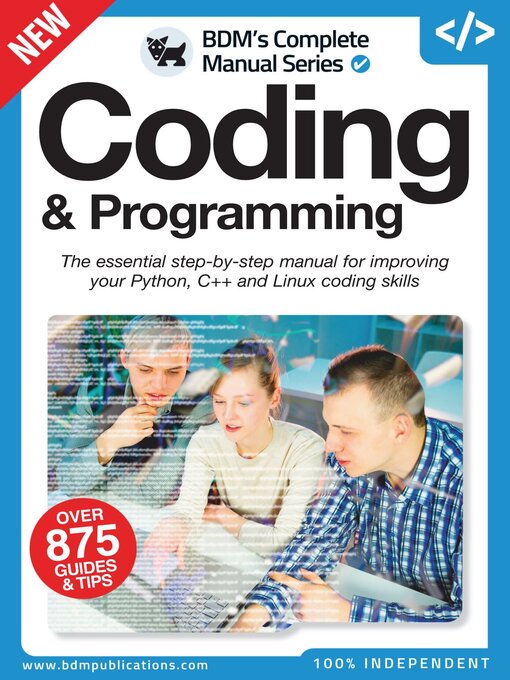
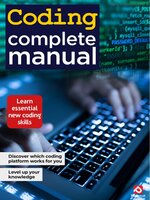 Issue 8
Issue 8
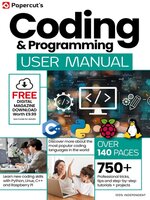 Issue 7
Issue 7
 Issue 6
Issue 6
 Issue 5
Issue 5
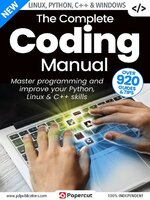 Issue 4
Issue 4
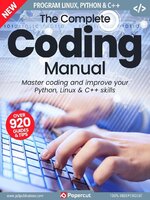 Issue 3
Issue 3
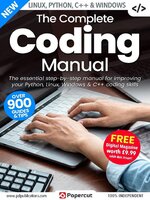 Issue 2
Issue 2